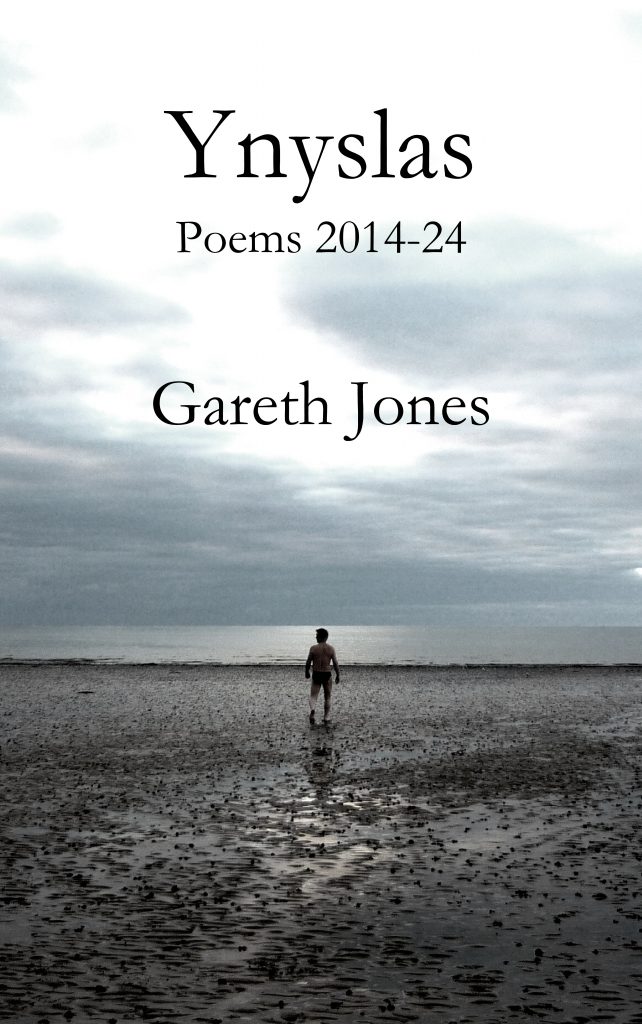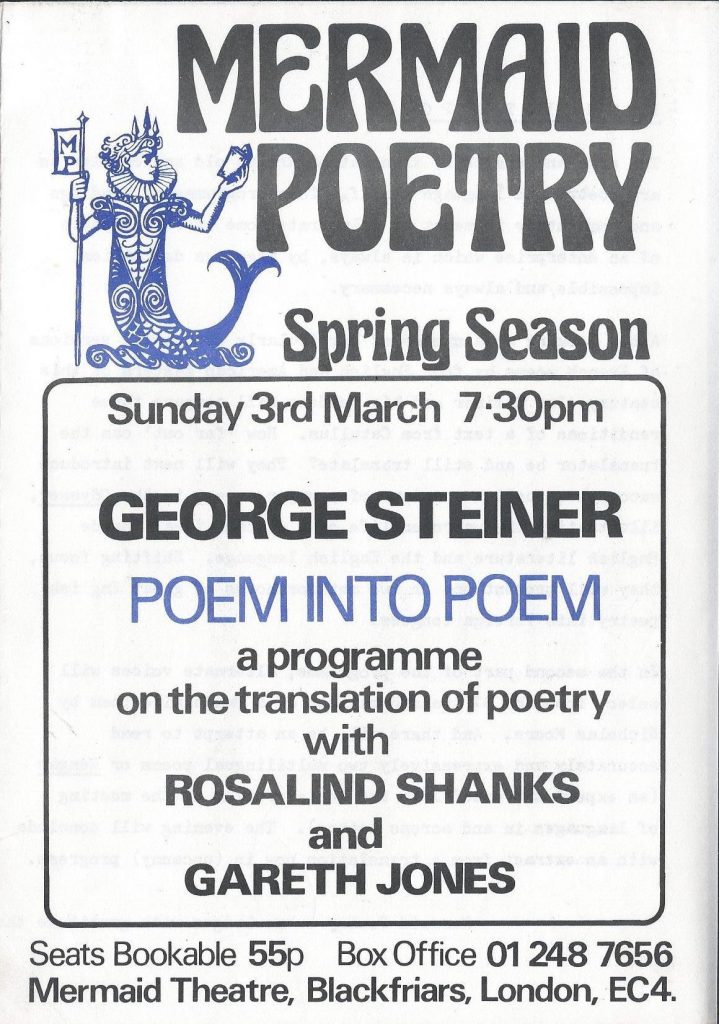Poetry
Ynyslas by Gareth Jones
 Buy ‘Ynyslas’ Kindle Edition on Amazon here
Buy ‘Ynyslas’ Kindle Edition on Amazon here
Buy Paperback Edition from Scenario here
Poetry has accompanied me from earliest years; at school I was teased for talking in verse.
This was nothing exceptional for the Welsh, whose language elides one word with the next by phonetic mutation resembling spoken music. When the hwyl takes hold – a form of ecstatic utterance shared by preachers, poets and penitents – there is no stopping the flow.
The ancient Celts of Britain and elsewhere were despised as illiterates by their Roman colonisers but much sought after in Athens and Rome as teachers of rhetoric to the young.
The lack of a script fostered something different: ingrained memory, flawless recitation, recurring patterns and inspired improvisation, demanding fluency and passionate persuasion.
The collection Ynyslas, though scripted not improvised, is designed to be spoken – performed even – in this bardic tradition of oral transmission, which releases the narrative and emotional progression through dramatic interpretation, preserving such debts to cynghanedd as unobtrusive internal rhyme and disguised alliteration, verse skills now largely abandoned in favour of ‘free form’.
These are mostly long poems by contemporary standards, often disguising a story, studded with dramatic re-enactment and dialogue, in the manner of Welsh poets from Dafydd ap Gwilym to David Jones, whose Anathemata and In Parenthesis were read to me by my father.
Ynyslas
1960 and the nuclear age hit North Wales in the form of Trawsfynydd Power Station built on our doorstep. Having witnessed the atomic explosion on Bikini Atoll and suffered health consequences that would haunt him till his death, my father had no desire to remain. His Wales had been blasted by concrete and worse might follow. In his absence on duty for the BBC in Tokyo that summer, my mother took their four children in search of a new home, further south, and found it not far from the magnificent beaches of Ynyslas that fringe the Dyfi Estuary.
Listen to the poem Ynyslas here.
Going to Switzerland
Tracing the passions and ideals that shaped or dislocated the past, one is tempted to surf for the half-forgotten lover of yesteryear. A harmless nostalgia, one might think. But instant information comes at a cost.
Listen to the poem Going to Switzerland here.
Vol de nuit
All travel carries an element of danger. Air travel is fraught with hubris we ignore at our peril. Poets are notoriously insomniac: risks taken and wagers pledged return as nightmare to torment one, a nocturnal fall from grace in keeping with Gustave Doré’s Lucifer. Vol de Nuit is based on a real event, with a debt to Gerard Manley Hopkins’s Wreck of the Deutschland.
Listen to the poem Vol de nuit here.
Time
Some say poetry is nothing without emotion. I would reply that words have their own emotion separate from their author. Time might seem only an elaborate verbal jest. A sequence of jagged monosyllables numbered off to the timing of a metronome, counting down to the present. The poem mixes archaic and actual in promiscuous union to explore the passage of time itself. Though no emotion is expressed, reflection discovers it.
Listen to the poem Time here.
All Hallows
It is generally assumed that nothing of one’s earliest months is retained in the adult psyche. But the child’s mind retains impressions recorded as a babe in arms. Child memory illuminates moments later discarded.
Listen to the poem All Hallows here.
 March 1974. The Mermaid Theatre, London, a short walk from the Guildhall School of Music and Drama, then still on Henry Carpenter Street, Blackfriars, where I was finishing a post-graduate course before taking up a trainee directorship with the Prospect Theatre Company.
March 1974. The Mermaid Theatre, London, a short walk from the Guildhall School of Music and Drama, then still on Henry Carpenter Street, Blackfriars, where I was finishing a post-graduate course before taking up a trainee directorship with the Prospect Theatre Company.
My recent Cambridge supervisor George Steiner, who knew me as a linguist and an actor, had invited me to take part in a poetry reading of his devising, Poem into Poem, as one of two readers.
His theme, provocative as everything George thought and did, was that even the best poetry can be improved by translation.
Rosalind Shanks was to read the originals; I was entrusted with the German and French translations. These included a miraculous Le naufrage du Deutschland from Gerard Manley Hopkins’s The Wreck of the Deutschland. To my shame I have no record of the translator, which is telling in itself.
Hopkins was, like Steiner, a polyglot. He wrote in the Welsh language, as well as in English, and understood many more. His cymraeg inspiration has been undervalued by critics with no access to the original Welsh text. The translation of his greatest poem brought this home to me: in French, The Wreck of the Deutschland reads more Welsh than English.
It was to be half a century before I dared investigate my own response to a more recent manmade disaster that has haunted me as that ill-fated vessel the Deutschland haunted him. My debt to Hopkins is acknowledged in Vol de Nuit, though pudeur or simple decency forbids further comparison.
George Steiner’s commitment to translation, to language and literacy, was radiant and inspirational.
The multi-culturalism to which I have devoted much of my filmic life, in part through his example, must welcome multi-lingualism as its natural pendant.
So I make no apology for the linguistic diversity of this and other poems. Language is life blood. Transfusion. English has nothing to fear.


